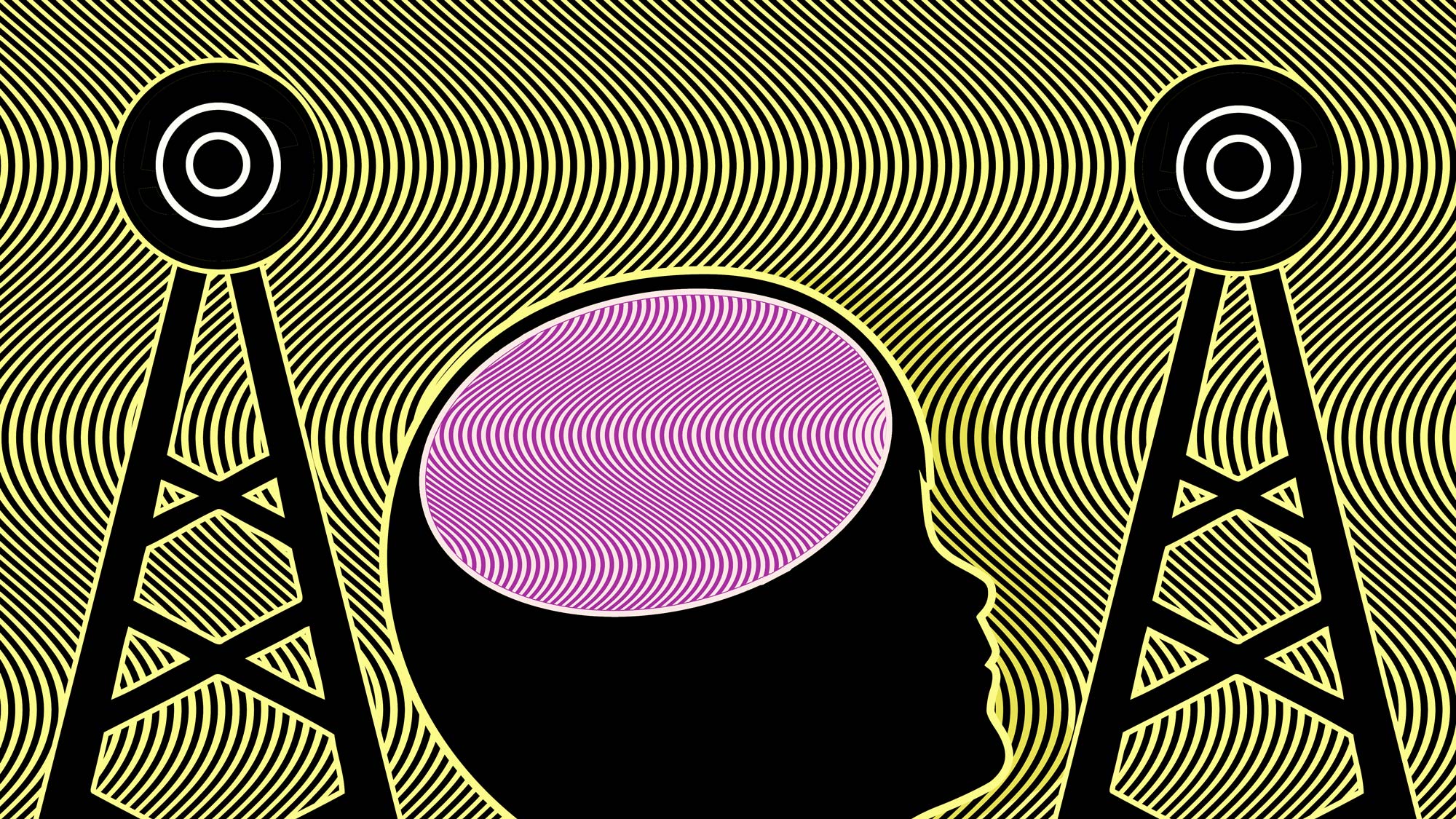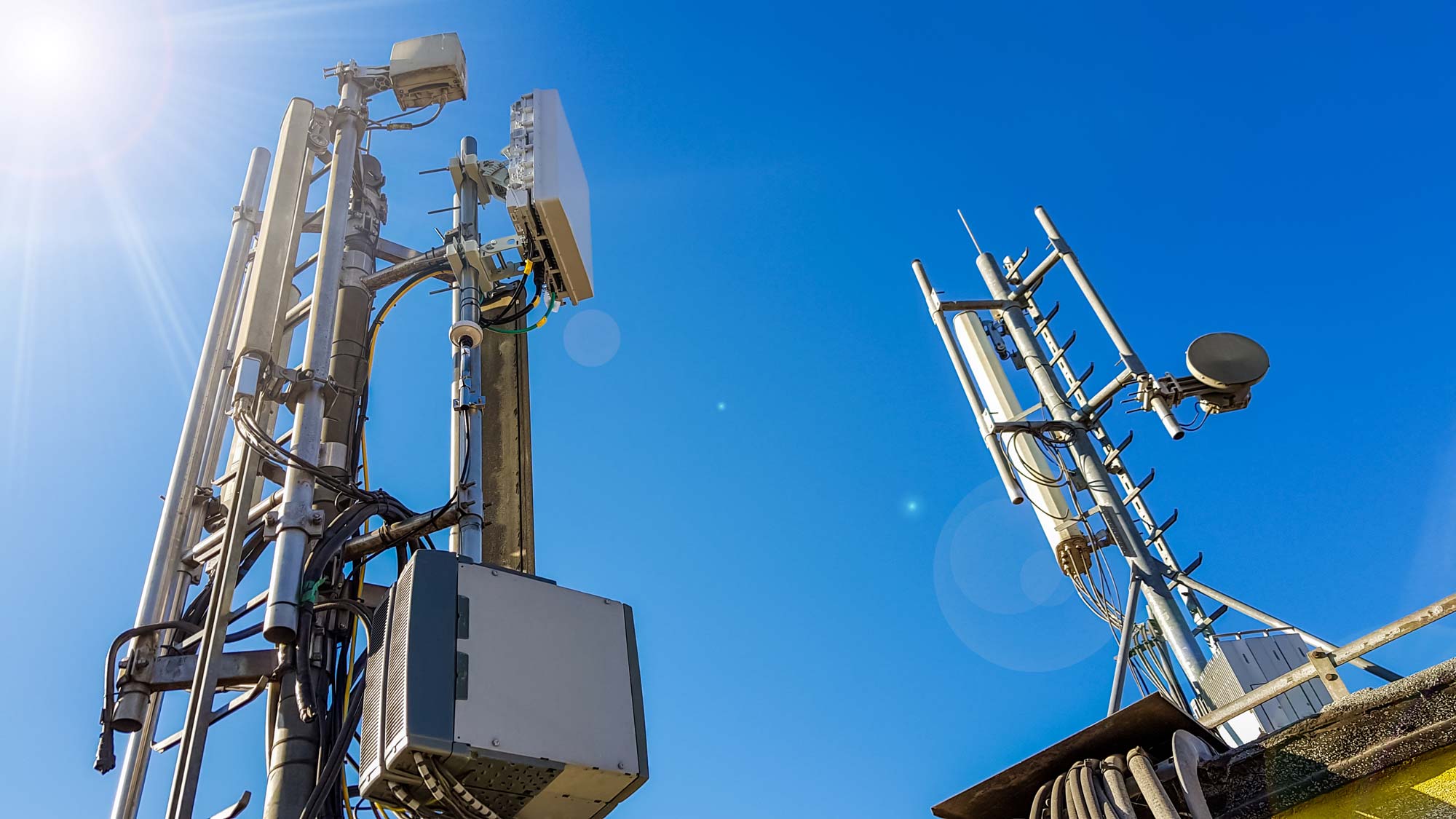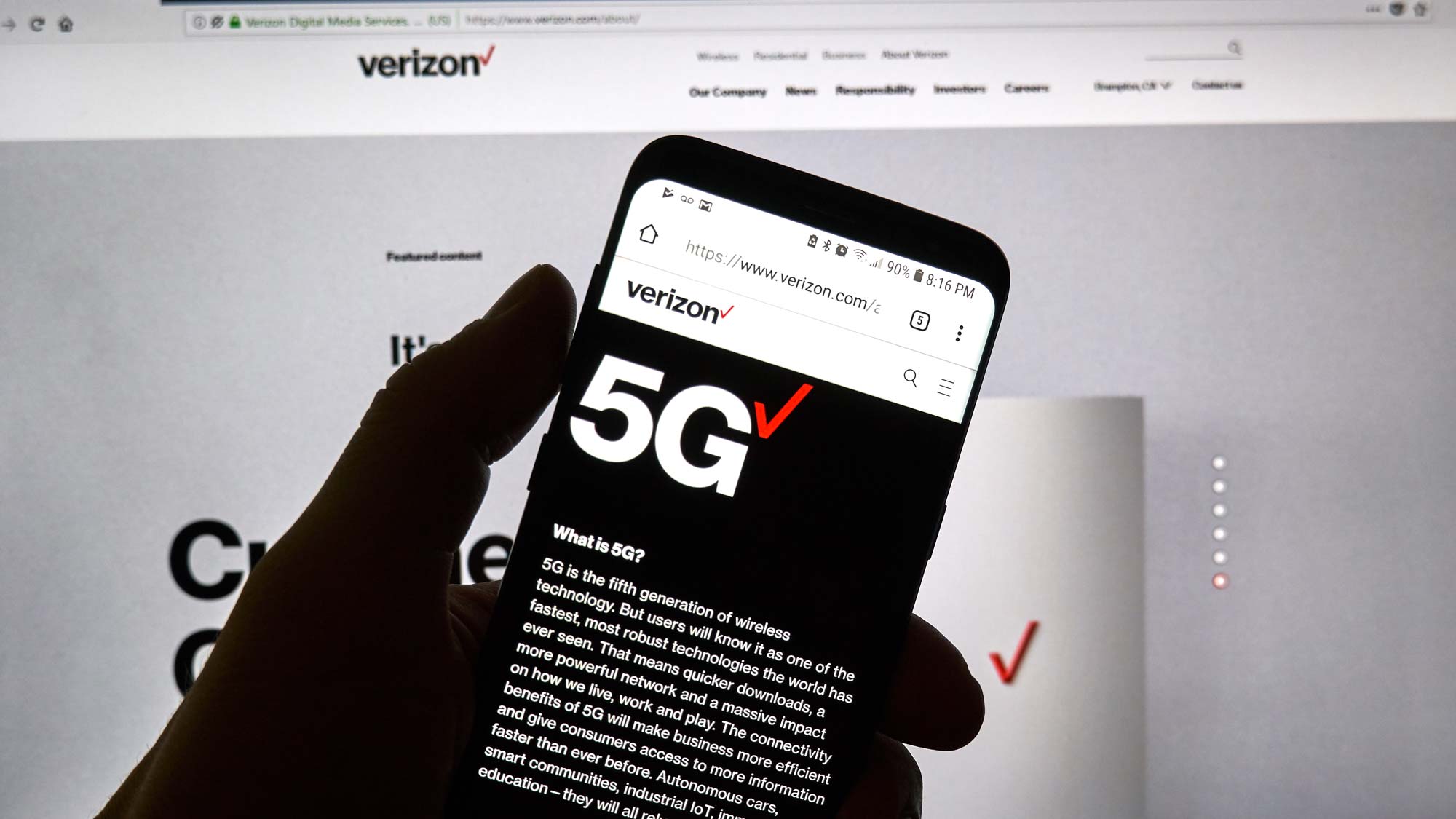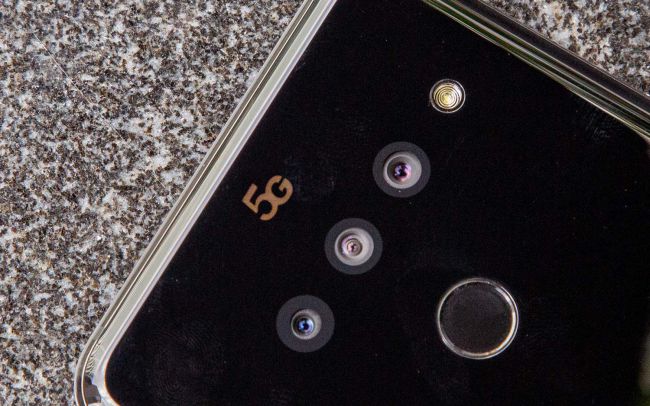5G Dangers: What the Experts Say About Health Risks
Is there cause for concern?

This year has delivered a whirlwind of hype surrounding 5G: how it will change lives, where 5G networks are launching around the world and when exactly your smartphone will be capable of lightning-fast speeds. But some people are concerned that the rollout of 5G is happening so quickly that we don't truly understand if or how the launch of next-generation connectivity will bring unintended health consequences.
The short answer: The scientific consensus is that 5G, like 3G and 4G before it, is not harmful to your health. In August, the U.S. Federal Communications Commission (FCC) officially determined that 5G's radio waves are safe.
But that finding probably won't stem the tide of worry over 5G's rollout, especially as more 5G phones hit the market and the coverage becomes more widespread.
Why are people concerned that 5G is unsafe?
Early 5G networks — including those launched by AT&T, Verizon and T-Mobile — use high-frequency, millimeter-wave (mmWave) spectrum to deliver faster speeds. Some people are concerned that those radio waves, along with the additional cellular infrastructure needed to build out mmWave-based 5G networks in major cities, will increase the amount of radiation in the environment.
The scientific consensus is that there are no known health risks from all forms of RF energy at the low levels approved for everyday consumer use.
CTIA spokesperson
Millimeter-wave spectrum has never been used for telecommunications. However, that's not because it's dangerous; the higher-frequency bands are just not as effective at transmitting data across distances. An mmWave-based 5G signal can't penetrate objects, such as glass windows or concrete buildings. It also can't penetrate the body.
The concerns over 5G are an extension of the worries some people have about cellphones in general.
But 5G is a form of radiation, right?
There are two types of radiation: ionizing and non-ionizing. Ultra-high-frequency ionizing radiation — which includes gamma-rays, UV rays from the sun and X-rays — is harmful to humans because it penetrates the body at the cellular level and causes electrons and atoms to break apart. Ionizing radiation can cause cancer, which is why you're supposed to wear sunscreen outdoors and avoid unnecessary medical X-rays.

Non-ionizing radiation does not cause cancer, and runs the gamut from FM radio waves to visible light. In between the two is 5G, which operates at a slightly higher frequency than 3G and 4G.
The FCC requires all electronic equipment sold in the U.S. to meet the agency's safety standards for acceptable radio-frequency (RF) energy by determining the device's specific absorption rate (SAR), or the rate by which the body absorbs RF energy. The FCC recently reevaluated its standards, which were created in 1996, when determining the safety of 5G. The recommended RF exposure limits remain unchanged.
MORE: What Is 5G? The Definitive Guide to the 5G Network Rollout
"The scientific consensus is that there are no known health risks from all forms of RF energy at the low levels approved for everyday consumer use," a spokesperson for CTIA, a trade group for the wireless communications industry, said in an emailed statement. "The FCC regulates RF emissions, including millimeter waves from 5G devices and equipment, and has adopted the recommendations of expert scientific organizations that have reviewed the science, including dozens of studies focused specifically on millimeter waves, and established safe exposure levels."
What's driving the fear of 5G?
There are a few factors contributing to the concern — or outright fear — of 5G's effects.

The first is scientific research that has been interpreted by some to support concern about cellphone radiation. For instance, a 2018 study released by the National Toxicology Program (NTP) found that when rats and mice were exposed to radio-frequency waves like the kind that emanate from cellphones, they developed malignant tumors. This particular study looked at 2G and 3G phones. However, that doesn't mean 5G will cause cancerous tumors in humans.
Skeptics, like the University of California, Berkeley's Joel Moskowitz, are calling for a halt to 5G's rollout.
"The exposures used in the studies cannot be compared directly to the exposure that humans experience when using a cellphone," John Bucher, a senior scientist for the NTP, said when announcing the findings. "In our studies, rats and mice received radio-frequency radiation across their whole bodies. By contrast, people are mostly exposed in specific local tissues close to where they hold the phone. In addition, the exposure levels and durations in our studies were greater than what people experience."
The NTP has said it plans to develop thorough studies to evaluate the safety of 5G.
The World Health Organization's International Agency for Research on Cancer has categorized RF waves from cellphones as a possible carcinogen, which is another factor contributing to the concerns over 5G. But, for context, an ingredient in coffee is also considered a possible carcinogen. Red meat is categorized as a probable carcinogen, which means it has a stronger link to cancer than cellphones do.
MORE: 5G Phones: Every Known Phone and Release Date
The New York Times reported earlier this year that one of the primary 5G fearmongers is Russian propaganda spreading on YouTube, Facebook and blogs across the internet. Videos and news articles filled with misinformation are scaring U.S. consumers even as Russia proceeds with its own 5G plans.
Have there been studies to prove that 5G isn't a health risk to humans?
5G is a new standard for wireless communication, but from a technological standpoint, it isn't all that different from 3G and 4G. The radio-frequency waves from 5G cellphones are akin to the RF waves from LTE devices (i.e., non-ionizing). According to the American Cancer Society, most studies have shown that "the RF waves given off by cell phones don't have enough energy to damage DNA directly or to heat body tissues."

In 2000, a now-debunked study on the effect of radio waves on brain tissue fueled conspiracy theories about cellphones and radiation. The author of the study, physicist Bill Curry, claimed that wireless devices could cause brain cancer in humans. According to The New York Times, Curry neglected to take into account that our skin protects our internal tissues from high-frequency radio waves (which is, again, why you need to wear sunscreen to protect the skin from even higher-frequency UV rays).
"If you're more concerned about the base station on your building than you are [about] spending an hour in the noonday sun without any protection, you might want to think about your priorities."
Christopher Collins
However, because 5G networks are just now getting off the ground with a new roster of 5G phones, no long-term studies of the network or the devices and their effects on humans have been conducted. In addition, the types of devices we use and the way we use them are constantly changing. For that reason, skeptics such as Joel Moskowitz, director of the Center for Family and Community Health at the University of California, Berkeley School of Public Health, are calling for a halt to 5G's rollout.
Moskowitz said it would be unethical to conduct a conclusive scientific study on human beings controlling for the health effects of cellphone radiation, so researchers rely on observational and animal studies. Those studies haven't proved conclusively that cellphones are harmful to humans, but Moskowitz thinks there's enough evidence to "put a moratorium on the rollout of new technologies" like 5G infrastructure build-out until more research is done.
"I'm certain that, within the next five years, radio-frequency radiation will be declared at least probably carcinogenic [by the WHO]," Moskowitz said.
But Christopher Collins, a professor in New York University's radiology department who studies the safety of electromagnetic fields, said the lack of 5G-specific research doesn't mean researchers are starting from scratch when evaluating 5G's potential effects on human health.
MORE: Here's Why Apple's 5G iPhone Isn't Coming Until 2020
"A lot of the premise of people who advocate against 5G or wireless communications fields in general seem to suggest that we just don't know and we need to do more studies," Collins said. "We know a lot. We've been doing experiments on humans and animals for decades over this entire spectrum."
Collins said scientists "never want to say the book is closed," but based on what we already know, there's no evidence to suggest that 5G will cause cancer or other detrimental health effects in most people.
So why are some local governments putting a stop to 5G development?
Prior to the FCC's 5G safety determination, city and state regulators were hearing from residents who were concerned that not enough was known about 5G. Specifically, people are concerned that the density of small cell sites required to build out mmWave-based 5G networks would emit dangerous amounts of radiation.
The FCC's 5G FAST Plan, which requires municipalities to approve 5G cell sites within 60 to 90 days, has caused concern. Carriers are moving quickly to build out infrastructure without giving residents notice, The Wall Street Journal reported, and local legislators are pushing back. Some 90 cities and counties have filed suit against the FCC in a case currently pending in the Ninth Circuit Court of Appeals.
Homeowners may not want new antennas outside their homes for aesthetic reasons, or because they want advance notice when changes occur in their communities, but the FCC, industry trade groups and many scientists maintain there is no proven health risk.
MORE: 5 Ways 5G Will Change Your Life
"Typical exposure to 5G devices — such as small cells attached to phone poles or the sides of buildings — is far below the permissible levels and comparable to Bluetooth devices and baby monitors," the CTIA spokesperson said. "The FCC continues to monitor the science to ensure that its regulations are protective of public health."
Or, as NYU's Chris Collins put it:
“One thing that we know can cause cancer is sunlight. People would generally do better to worry about that than the exposure levels we're talking about with cellphones. If you're more concerned about the base station on your building than you are [about] spending an hour in the noonday sun without any protection, you might want to think about your priorities."
Bottom line
Scientists and researchers will keep studying radio-frequency waves, including 5G, to add to the existing body of research. But without replicable, concrete proof that radiation from cellphones or wireless networks causes serious adverse health effects in humans, Collins said, there's no reason to stop the rollout of 5G.
"Is it time to stop questioning? No, it's never time to stop questioning," he said. "It's important to remember that, based on what we know now, there is no effect except for heating. This is based on many decades' worth of study in these fields. It's another thing to say, 'Should we stop progress?' based on what I would call unfounded concerns. I am quite certain there's nothing to be alarmed about for millimeter waves."
If you are concerned, there are ways to mitigate your personal exposure to cellphone radiation by using fewer wireless devices. That might also do wonders for your mental health, too.
Sign up to get the BEST of Tom's Guide direct to your inbox.
Get instant access to breaking news, the hottest reviews, great deals and helpful tips.
Caitlin is a Senior editor for Gizmodo. She has also worked on Tom's Guide, Macworld, PCWorld and the Las Vegas Review-Journal. When she's not testing out the latest devices, you can find her running around the streets of Los Angeles, putting in morning miles or searching for the best tacos.
